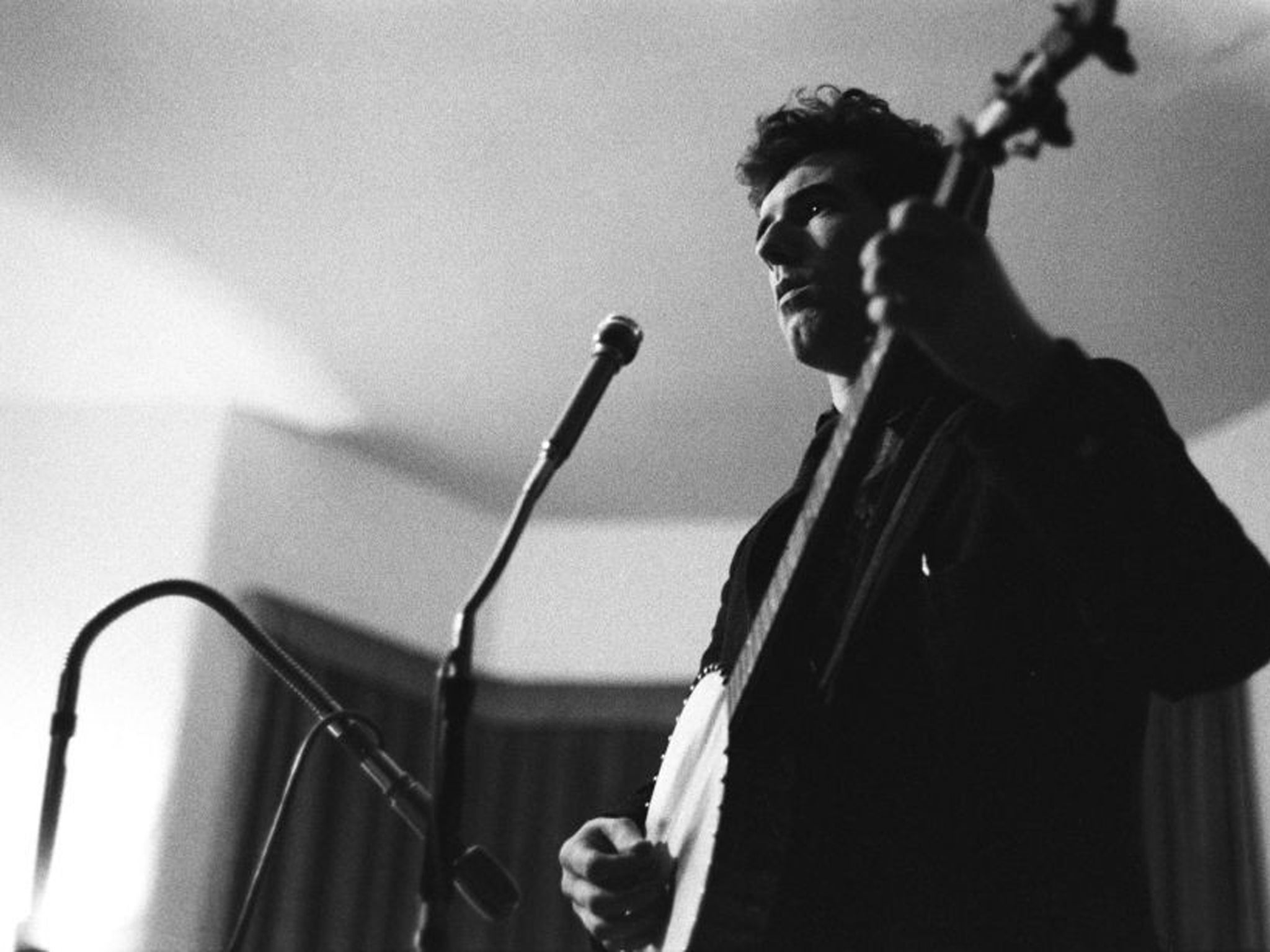Lou Killen: Singer in the vanguard of Britain’s folk revival
As Louisa, she chose to live her last years as a woman; her wife Margaret was a tower of strength

Lou Killen was one of the most coruscating and most commanding folk singers of Britain’s post-war folk revival – and, indeed, of all time. Once Killen sang a song, it had the Killen imprint. Certain traditional songs, most famously “The Flying Cloud”, came stamped with “Property of Lou Killen”.
Part of the second wave after Bert Lloyd and Ewan MacColl, he created an unparalleled body of work: as a soloist; in duos with singers Isla Cameron, Peter Bellamy, Sally Killen and Mike Waterson; in collaborations on the McColl-Charles Parker-Peggy Seeger Radio Ballads; with Pete Seeger; and, between 1971 and 1974, with the US-based Clancy Brothers – in which he described his role as “Tommy Makem Jnr”, referring to the man into whose shoes he had stepped. In folk musician Emily Portman’s words, Killen “closed the gap” between the generations, similarly influencing today’s Alex Neilson of Trembling Bells, Jackie Oates and James Yorkston.
In 1966 Izzy Young nailed his colours to the mast in Sing Out!, North America’s folk magazine of record. In an article republished in The Conscience of the Folk Revival – The Writings of Israel “Izzy” Young (2013), he wrote: “Mr Killen brings you back to the word, to the story, and all unscathed by accompaniment. And when he uses the concertina it is only to help the word, not hide it in adornment. Songs you’ve forgotten magically have story lines again.”
Louis Killen was the youngest of four sons born to Mary Margaret (née Nolan) and Francis Killen in 1934 on Tyneside. “We didn’t think of ourselves as Northumbrians,” Killen told me in 1991. “We were Geordies because we came from the industrial Tyne.” Growing up he heard songs, sometimes in their genteel parlour form, that he took to be Geordie songs without knowing what they were. At home there were sing-arounds with repertoire fed by wireless programmes such as Country Magazine and songbooks like Catcheside-Warrington’s Tyneside Songs. “My mother was Irish but I didn’t get any mass of Irish traditional songs from my mother,” he said. “What we got was Thomas Moore songs. I have this whole sense in my mind of the six of us singing together. Everything was grist to the mill in our family. None of us read music but we all had great ears.”
Jazz and country music fed his head. At 16 he delivered a lecture based on “a couple of chapters of Mezz Mezzrow’s Really The Blues” at Newcastle Rhythm Club. In 1957, while staying at Oxford’s Catholic Workers’ College, he discovered the university’s folk music Heritage Society. His knowledge of folk music expanded exponentially. Returning to Tyneside he co-founded Newcastle’s Folk Song & Ballad Club in 1958, one of the nation’s first folk clubs.
In 1959, using his British Rail staff pass, he visited Ballads & Blues in Holborn, London’s leading folk club hosted by Lloyd, MacColl and Seeger. Having impressed MacColl on a previous visit, that Saturday he was offered work on the second Radio Ballad, “Song of a Road” (1959), about the building of the M1, which was due to start the following Monday. He raced back, grabbed his gear, lost his job and started a long-running collaboration with MacColl & Co (“until ’64 or so, when we drew apart”) that brought them into the orbit of the thriving Newcastle folk scene.
Two Radio Ballads followed with Killen’s involvement: “The Big Hewer” (1961), about mining, and “On the Edge” (1963) about teenagers. Coevally Killen masterminded an ambitious project of North-eastern songs, later anthologised as Along The Coaly Tyne and originally released as a triptych of EPs during 1962. Charles Fox in The Gramophone hailed him “an extremely fine young singer from Gateshead”. That year he was one of the musicians that joined the TUC-sponsored Centre 42 performing arts tour. “To actually earn a living singing was the Ninth Wonder of the World; as far as I was concerned, it was a dream that I didn’t really think I could attain until I was 28.”
In April 1967 Killen emigrated to the US, his consummate Ballads And Broadsides (1965), with notes by Angela Carter and its buccaneering ballad “The Flying Cloud”, creating an unrivalled calling card, honed ballads and nautical songs a speciality. The US remained his base until he returnedto Gateshead in 2004.
As Louisa Killen she courageously chose to live her last years as a woman. Initially she told only close friends about her wish to undergo transgender treatment. By 2011 she had successfully lived as Louisa Killen and was accepted for more advanced transgender treatment. Throughout Margaret proved a tower of strength and for extended stints returned from the US to care for her ex-husband.
Ever-opinionated, at a concert together in 2008, Louisa wondered aloud about the latest folk singers, “Do they ever sing these songs for pleasure without it being performance?” Sometimes doctrinaire, sometimes arrogant, as Izzy Young wrote, Killen was “the most uncompromising of the second generation of English city folk singers.”
Louis Joseph (later Louisa Jo) Killen, singer and musician: born Gateshead, Co Durham 10 January 1934; married 1966 Rochelle (Shelly) Hope Estrin, 1972 Sally Hamilton Jennings, 1979 Margaret Jeanne Osika; died Gateshead 9 August 2013.
Join our commenting forum
Join thought-provoking conversations, follow other Independent readers and see their replies
Comments
Bookmark popover
Removed from bookmarks